Fun. No matter genre or style, comics should always be fun. Unfortunately, sometimes, comics fail on this point either through content or execution. While it’s true that “fun” may be a quickly moving target for audiences generation to generation, it shouldn’t be too hard to point out comics that miss this. Even the most progressive and innovative comics have a “fun” quotient. Currently, DC Comics seems to be struggling with this notion in a significant segment of their line. However, there are some titles which have no problem exuding “fun!” It’s telling that the company that would be known as DC launched their first title in 1935, New Fun: The Big Comic Magazine. It’s even more telling, that this title evolved into More Fun Comics. From the very beginning, there’s been a notion of “fun.”
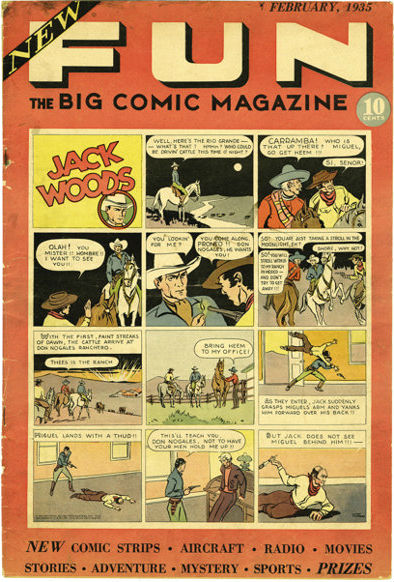
It may be easy to say that the element of “fun” is elusive and subjective. However, there are some classic titles that due to mature themes may seem to contradict this notion. Let’s look at Watchmen. While this comic is full of mature elements, it never eliminates the aspect of fun. The use of the Charlton Comics characters as analogs is an instant indicator of “fun.” It’s clear that Alan Moore is tying in to the history of comics, not only Charlton’s history, but the very history of comics as his backstory evokes the Golden Age of DC’s history. While Nite Owl, Silk Spectre and the rest are more or less original creations, it’s clear that they echo characters like the Golden Age Flash, Green Lantern and Atom that were in use in the DC Universe at the time. Any contemporary reader would be aware of this. It’s not hard to imagine that reader understanding that Moore was creating a sort of synergy with the legacies in the DC Universe. While not an analog for the Justice Society of America, the Minutemen are that world’s first team of mystery men like the JSA in the traditional DC Universe. Evoking legacy is one of the primal elements of comic book “fun.” This is what made the reintroduction of the Justice Society of America in Justice League of America #21 and #22 such a hit in 1963.
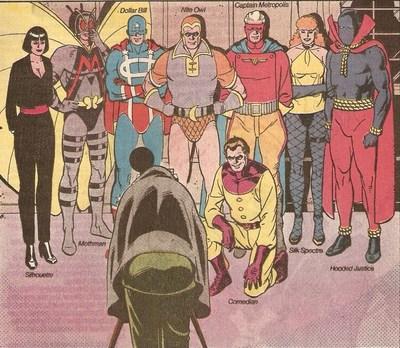
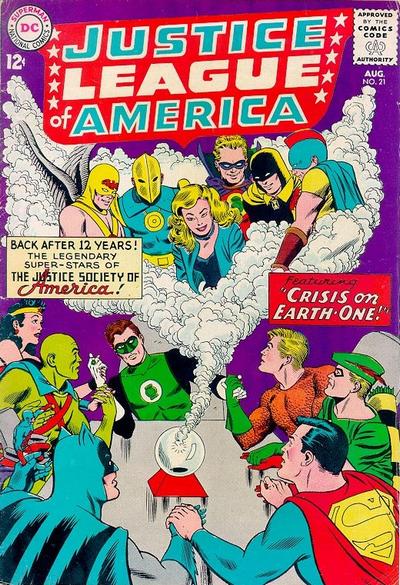
If something as highly acclaimed and serious as Watchmen can contain “fun,” what’s going on with today’s books? There’s no shortage of fun in the current Hawkman, and The Terrifics as well as the recent Plastic Man mini-series. However, the Heroes in Crisis mini-series/event is anything but fun. Issue #1 was essentially a bloodbath with 1/2 the issue devoted to Harley Quinn stabbing Booster Gold, repeatedly and unrelentingly. There’s no fun here. The tone is somber and the action mired in gratuitous violence. The basic premise of the series is that sometimes super-heroes need some mental and emotional counseling. At Sanctuary, the heroes hope to receive that assistance, but there’s a mass murder at the facility that takes the lives of some fan favorite characters, Wally West and Roy Harper. The premise is about as far from fun as could be imagined. While it has the potential to be a truly moving story, so far it has felt more like spectacle with little substance. It would’ve been much more effective to have created an emotional connection with the victims before dispatching them.
Even a moment that could be perceived as fun in issue #2, when Harley Quinn takes out the Trinity, feels awkward and incongruous. Perhaps, one needs to be a full on Harley fanatic to appreciate this moment. To the average reader, it feels incredibly bizarre and absurd considering the accepted portrayal of Superman, Batman and Wonder Woman. Perhaps, there is more going on, but on the surface, it appears to be quite ridiculous considering Harley Quinn’s power set. In the end, it feels out of place and damning of the Trinity. It’s hard to smile with such an indictment of DC’s big three.
The fallout from Heroes in Crisis naturally extends over to Titans. The team has lost Roy Harper and Wally West, Arsenal and the Flash respectively to the events at Sanctuary. Additionally, Donna Troy seems to be struggling with alcohol. And, to add insult to injury (pun intended), Nightwing their leader suffered a gunshot to the head in Batman #55 that has left him with amnesia. He only remembers his life before his parents were killed. Dick Grayson has no memory of his life as the original Robin or Nightwing, nor of Bruce Wayne as his adoptive father. This whole storyline plays like an attempt to remold Dick Grayson’s personality and affect a name change to “Ric” in order the pacify the perpetually immature that can’t handle the traditional nickname for Richard, Dick. All this trauma leaves very little fun in the Titans book, which is 180 degree turn from where it started out with the pre-Rebirth mini-series, Titans Hunt, and the first story arcs during the Rebirth branding of the DC line. These stories relied on the nostalgia for the return of the original Teen Titans to the history of the DC Universe and featured friends rediscovering friendships. Nostalgia is a major fun factor, as is friends reconnecting, either in real life or between beloved fictional characters.
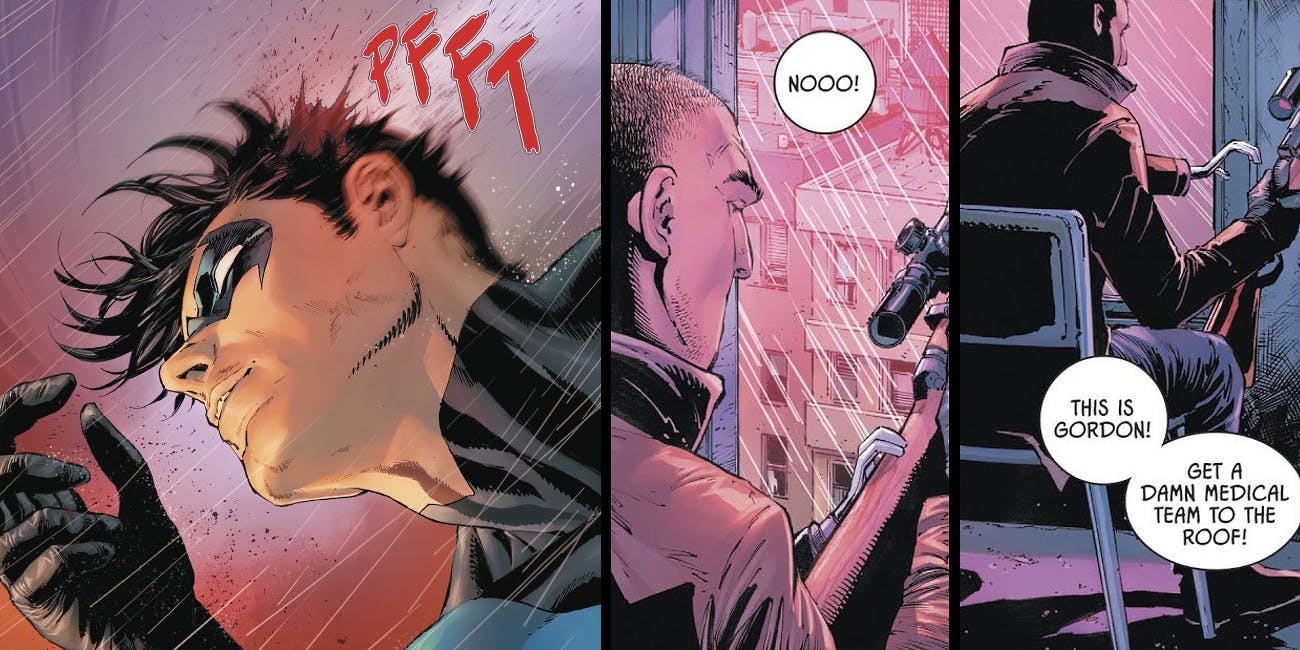
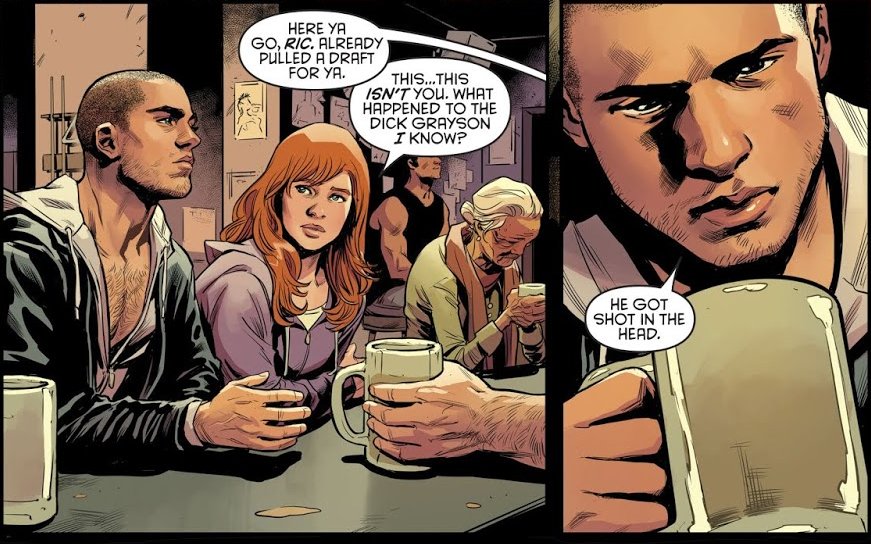
Looking at the recent Plastic Man mini-series by Gail Simone and Adriana Melo, it’s not hard to see the fun in it. While the character may lend itself to something more humorous, there’s a fun in exploring Plas’s character. Addressing Pado Swakatoon’s identity issues is just as serious as what Tom King is attempting in Heroes in Crisis. The difference seems to be that Simone and Melo find an element of fun embedded in the themes. King appears to have lost this in his Batman run as well. His lead up to the “non-wedding” included some great character moments and “fun”, most significantly the double date with Lois and Clark at the carnival. However, with Batman #50, the “non-wedding” issue, was a great disappointment. Weddings are generally considered to be fun events, even if just in the moment. However, Bruce and Selina never got that far. There’s nothing fun about a wedding that doesn’t happen. Ask any guest….
Let’s look at Hawkman and The Terrifics, two DC Comics series that both exude “fun.” Hawkman not only presents an interesting plot, but builds on the main character, Carter Hall. There’s a lot going on with this character as his history is explored and yet not destroyed. Robert Venditti has managed to build on Hawkman’s past in an interesting way which doesn’t eliminate any aspect of his history. Instead, it embraces it. This is a real triumph! It exudes “fun.” It doesn’t necessarily require previous knowledge and it doesn’t eliminate ANYTHING that’s come before.
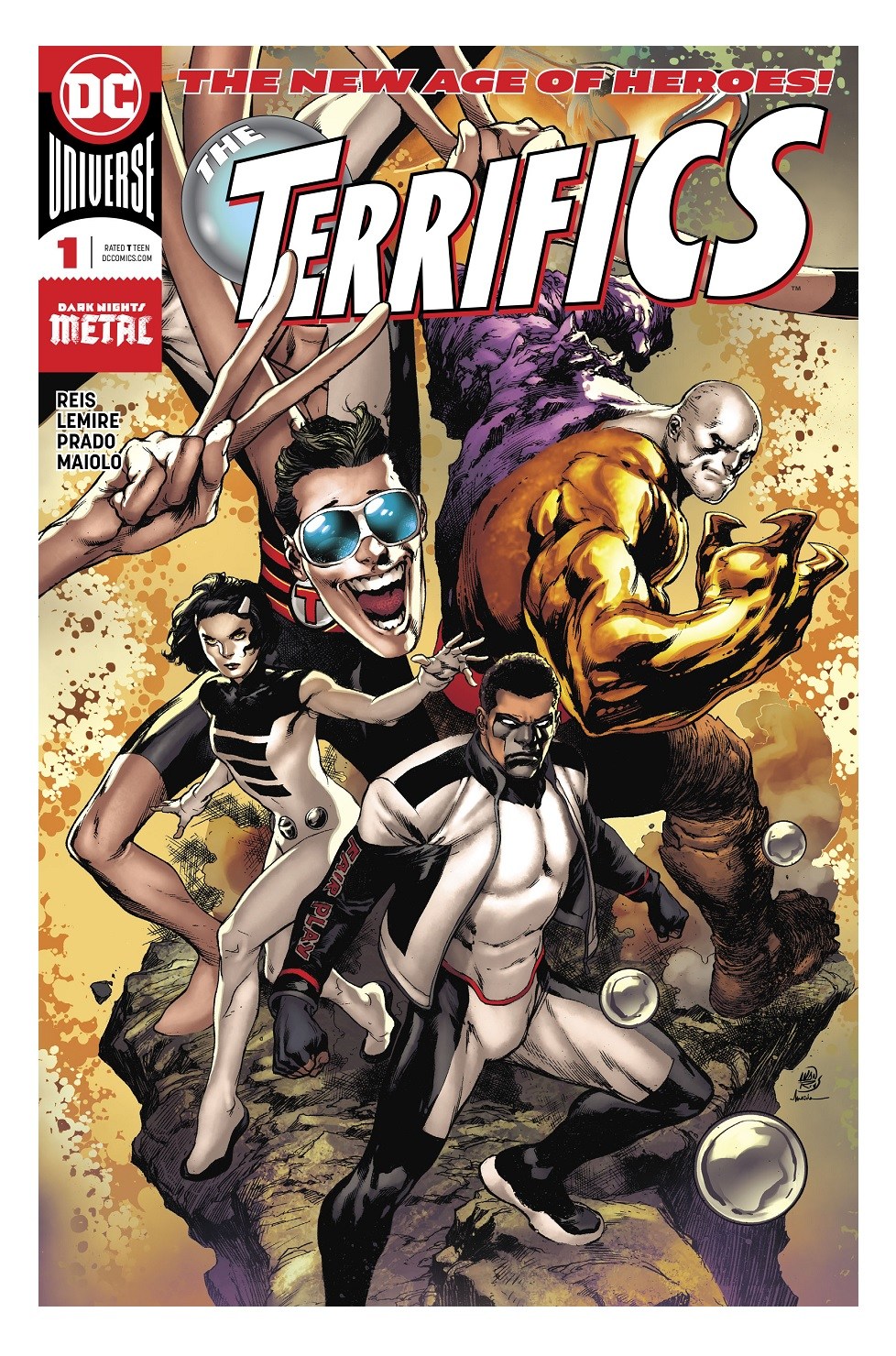
The Terrifics channels the fun and themes that the Fantastic Four originally produced back in 1961 for Marvel Comics. It’s no secret that The Terrifics draws on the chemistry of the Fantastic Four, but more importantly it manages to remain “fun” utilizing the unique personalities of Plastic Man and Metamorpho contrasted against the Mr. Fantastic intellectual analog, Mr. Terrific.
It’s prescient to look at Marvel’s The Immortal Hulk, a series which is not only doing well and receiving positive response, but also serious, somewhat scary and definitely mature. Despite all of these attributes going against it, this series manages to remain “fun.” It is able to channel the original horror element of the basic concept while maintaining a modern sensibility. There is no doubt, however, that Immortal Hulk is fun. Most recently issue #8 has featured a dismembered Hulk still able to provide succor for Bruce Banner. Perhaps, it is the relationship between the two that remains most salient element in the book.
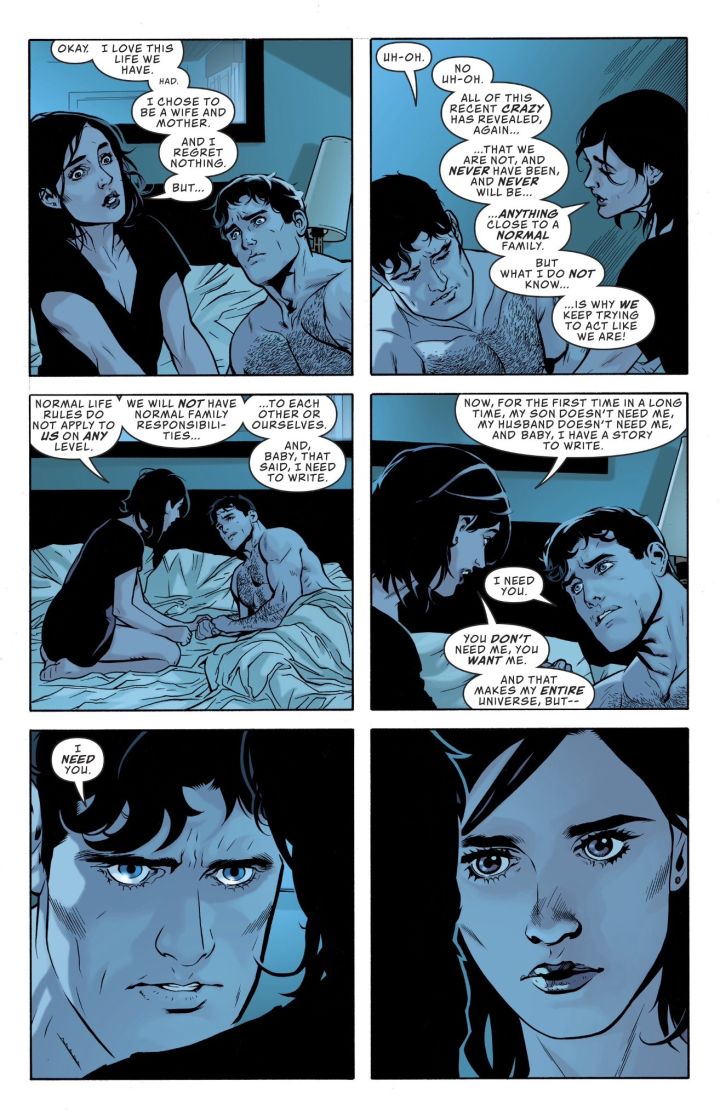
Maybe, the most damning titles in DC’s stable are the Superman books by Brian Michael Bendis. What should be fun is not, and what’s left is sometimes boring and mostly depressing. The Rogol Zaar storyline is progressing too slowly and quite underwhelmingly while the Lois Lane subplot in Action Comics feels completely wrong. The solicits for February’s comics seem to project a future for Jon Kent (Lois and Clark’s son) that has robbed the reader of Jon’s growth and development. Bendis seems to be robbing the reader of understanding how Jon matures and grows, as well as robbing Lois and Clark of raising their child. Not only is this not fun, it is disturbing. If you haven’t dropped Bendis’ Superman books, go ahead and do it now so there may be a chance of salvaging the Kent family. “Fun” is watching the Kent’s raising their son. Depriving them of this opportunity shows a complete lack of respect for the characters, and an agenda of spectacle over character development. There’s enough inherent conflict and story ideas in raising a child with superpowers that Bendis’s contrived plot are not only unnecessary, but uninteresting and depressing- the opposite of “fun.” Not mention, a status quo that absolutely no one asked for. There’s an ominous cloud hanging over Superman’s head as Bendis seems to be purposely breaking down the Man of Steel instead of writing legitimately interesting character development. A mopey, sad Superman is just depressing, and it doesn’t feel genuine when the conflict is so clearly contrived.

It’s not as if there is just one title or character that seems to be suffering from a lack of fun. The widely reaching Heroes in Crisis event sort of permeates the tenor of the DC Universe. Interestingly, this atmosphere isn’t isolated in the books that are dealing with the repercussions of Heroes in Crisis directly. Superman and Nightwing both have some very somber elements that tinge the overall tone of their current storylines and suck the fun out of the drama. At some point, if the comics you are reading aren’t fun and enjoyable you should drop them. Superman, Action, Titans, Heroes in Crisis, maybe Batman…. Send a message, read what you like…buy what you want to read…don’t be afraid of change….

